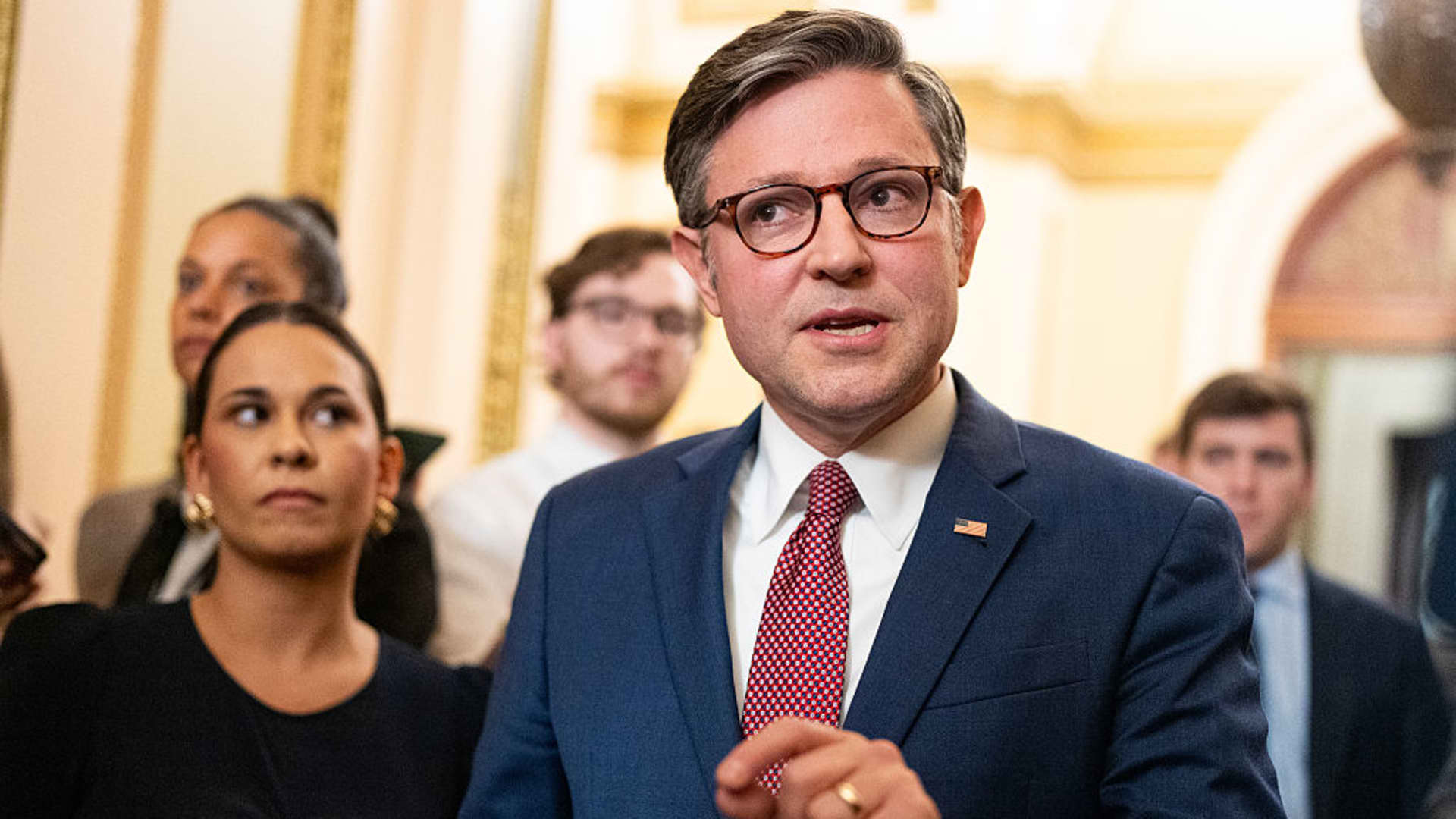Navigating the Turbulence in Advancing Trump’s Budget Agenda
The Republican Party is currently engaged in a high-stakes battle to pass a sweeping budget plan that embodies former President Donald Trump’s legislative ambitions. However, the party faces significant internal dissent, primarily from conservative hardliners, which has stalled progress and forced strategic reassessment. This report delves into the complexities surrounding the proposed “One Big Beautiful Bill,” uncovering the ideological divides, procedural setbacks, and political ramifications that characterize this ongoing struggle.
—
The House Budget Committee’s Rejection: A Critical Setback
The recent 16-21 vote against the budget package by the GOP-controlled House Budget Committee represents a major blow to Trump’s agenda and party leadership. Notably, opposition did not arise solely from Democrats but included five Republicans taking a principled stand against what they perceive as insufficient fiscal discipline. This bipartisan obstruction not only halted momentum but exposed fractures within the Republican ranks, making clear that unity remains elusive.
This rejection signals discomfort among conservative factions who seek deeper spending cuts and hold significant reservations about the bill’s implications for the national deficit. The party leadership, represented by Speaker Mike Johnson and others, now confronts the difficult task of bridging ideological differences while maintaining a coherent political strategy. The mounting pressure to meet a looming July 4 deadline adds urgency, but also risks further destabilizing efforts.
—
Ideological Fault Lines within the GOP
At the core of the discord lies a tension between fiscal hawks demanding stringent budget reductions and moderate Republicans favoring a more balanced approach that accommodates certain expenditures. Conservative hardliners contend that the bill’s planned tax cuts and spending cuts don’t go far enough in curbing government size or reducing the deficit, reflecting a purist vision of austerity.
Conversely, some Republicans exhibit concern about electoral repercussions and the need to protect key programs benefiting swing districts or vulnerable populations. This ideological tug-of-war complicates efforts to present a united front, given the challenge of harmonizing policy goals with political pragmatism.
—
Negotiations, Delays, and the Legislative Chessboard
The path to advancing the budget has been marked by repeated postponements of crucial votes and intense behind-the-scenes negotiations. The pushback from influential members of the House Budget Committee illustrates how committee dynamics can decisively shape legislative outcomes, emphasizing the importance of securing consensus early in the process.
Simultaneously, Senate Republicans are adding another layer of complexity by signaling their reluctance to embrace the House version without stricter fiscal parameters. This inter-chamber tension not only prolongs the legislative limbo but highlights competing visions within the GOP about how best to address America’s fiscal challenges.
—
Dissecting the “Big Beautiful Bill”: Ambitions and Critiques
The budget proposal is expansive, featuring roughly $4.5 trillion in tax cuts balanced against $2 trillion in spending reductions. It encompasses a variety of policy areas, including enhanced defense funding, support for the energy sector, immigration restrictions, and comprehensive tax reform. Proponents tout it as transformative, envisioning a sweeping realignment of the federal budget that advances conservative fiscal principles.
However, detractors argue that the bill neglects crucial concerns such as the protection of Medicaid coverage, the resilience of the social safety net, and the sustainability of the national debt over the long term. This critique exposes a fundamental rift about the priority and scope of government responsibility that underpins broader disagreements within the party.
—
Trump’s Influence: Public Appeals and Party Discipline
Former President Trump has remained a vocal advocate for the budget package, leveraging social media platforms like Truth Social to pressure Republicans into supporting the bill. His rhetoric frames dissenters as obstructive “grandstanders,” urging party members to prioritize unity and swiftly pass the legislation.
Despite this assertive stance, Trump’s appeals have fallen short of quelling internal division. The persistence of factional discord illustrates the limits of top-down influence when confronted with deeply held ideological convictions and competing political calculations.
—
Economic and Political Stakes in a Fraught Moment
These Republican struggles unfold against an economically sensitive backdrop marked by concerns over inflation, trade uncertainties, and debates on fiscal direction. Failure to approve a cohesive budget risks stunting legislative momentum and weakening Republican leverage ahead of forthcoming elections.
Moreover, delays in confirming funding for defense, energy, and tax policies threaten to disrupt governance and economic stability. The public infighting within the GOP could erode voter confidence, undermining the party’s political prospects and providing strategic advantages to opponents.
—
Looking Ahead: Seeking Unity Amidst Divergence
The Republican Party finds itself at a crossroads, grappling with the challenge of advancing a bold and multifaceted legislative blueprint while managing profound internal disagreements. To progress, leaders must reconcile competing ideological perspectives, respond to Senate demands, and navigate deadlines, all while maintaining a message of unity.
Whether pragmatic compromise can bridge these divides remains uncertain, but the outcome will significantly shape the trajectory of Trump’s political legacy and the future of American conservatism. The “One Big Beautiful Bill” thus symbolizes not only a legislative endeavor but also the broader struggle for coherence and identity within the contemporary GOP.
—
Navigating these turbulent waters will require both strategic finesse and political courage. As the clock ticks down, the resolution of these conflicts will determine whether the Republican Party can translate ambition into action or succumb to fragmentation in a pivotal moment of governance.











